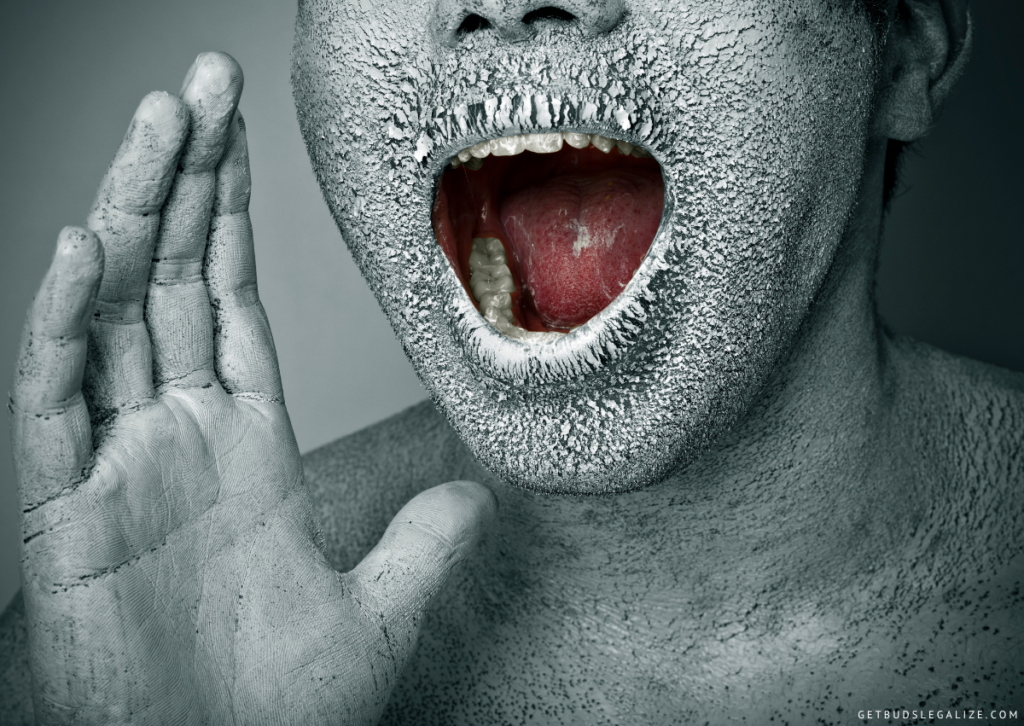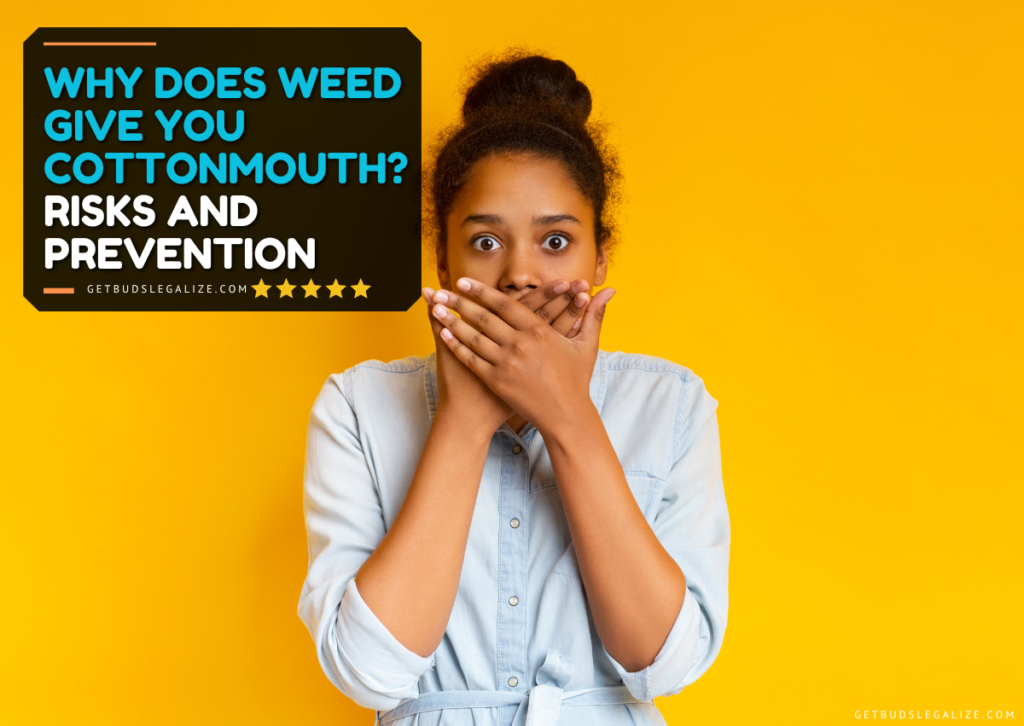Why Does Weed Give You Cottonmouth?
If you have ever smoked weed, you may have experienced a dry mouth sensation that is commonly known as cottonmouth. Cottonmouth is one of the most common side effects of cannabis consumption, and it can affect both recreational and medical users.
But what exactly is it, and why does weed give you cottonmouth? In this blog post, we will explore the science behind cottonmouth, its potential health implications, and some tips on how to prevent or relieve it.
What Causes Cottonmouth?
Cottonmouth is the result of reduced saliva production in the mouth, which can make it difficult to swallow, speak or eat. Saliva is important for oral health, as it helps to wash away food particles, neutralize acids and prevent tooth decay and gum disease.
The main reason why cannabis causes dry mouth is that it interacts with the endocannabinoid system (ECS), a network of receptors and molecules that regulate various bodily functions, including saliva secretion. The function of the ECS is modulated by two types of cannabinoid receptors: CB1 and CB2. CB1 receptors are found in the brain and nervous system, while CB2 receptors are found in the immune system and peripheral tissues.
Cannabis contains compounds called cannabinoids, such as THC (Tetrahydrocannabinol) and CBD (Cannabidiol), that can bind to these receptors and modulate their activity. THC, the main psychoactive component of cannabis, has a high affinity for CB1 receptors, which means it can activate them strongly. CBD, on the other hand, has a low affinity for both types of receptors, which means it can block or enhance their effects depending on the context.
When THC binds to CB1 receptors in the brain, it can affect the activity of neurons that control saliva production. These neurons release a neurotransmitter called acetylcholine, which stimulates the salivary glands to secrete saliva. However, when THC activates CB1 receptors, it can inhibit the release of acetylcholine, resulting in less saliva and a dry mouth.
Is Cottonmouth Dangerous to Health?

Cotton mouth is not a serious or dangerous condition, but it can be uncomfortable and annoying. It can also affect your oral health if it persists for a long time or if you have poor dental hygiene.
A lack of saliva can increase the risk of developing oral problems such as:
- Leukoedema: This is a whitish or grayish appearance of the mucous membranes of the mouth. It is usually harmless and does not require treatment, but it can make your mouth more prone to irritation or infection.
- Tooth decay and cavities: Saliva helps wash away food particles and bacteria from your teeth and gums. It also contains minerals and enzymes that protect your enamel and prevent tooth decay. Without enough saliva, your teeth are more vulnerable to plaque buildup and cavities.
- Periodontal disease: This is a chronic inflammation and infection of the gums and the supporting structures of the teeth. It can cause bleeding, swelling, pain, and tooth loss. Saliva helps keep your gums healthy by reducing inflammation and fighting bacteria. Without enough saliva, your gums are more likely to develop periodontal disease.
- Candida albicans: This is a type of fungus that normally lives in your mouth without causing any problems. However, when your mouth is dry, the fungus can grow out of control and cause oral thrush. Oral thrush is a condition where white patches appear on your tongue, cheeks, or throat. It can cause soreness, burning, difficulty swallowing, and bad breath.
How Can You Prevent or Treat Cottonmouth?

The best way to prevent cotton mouth is to avoid consuming cannabis or reduce your dosage. However, if you are using cannabis for medical reasons or simply enjoy its effects, there are some steps you can take to minimize or alleviate cottonmouth. Here are some tips:
1. Stay Hydrated:
Drinking water is the simplest and most effective way to prevent or relieve cottonmouth. Water helps to moisten your mouth, wash away bacteria, and prevent dehydration. Drink water before, during, and after consuming cannabis, and keep a glass or bottle of water handy at all times.
2. Avoid Dehydrating Drinks:
Some beverages can make cottonmouth worse by dehydrating your body or drying out your mouth. These include alcohol, coffee, tea, soda, and juice. If you drink these beverages, make sure to balance them with water or switch to herbal tea, which can help to soothe your mouth and throat.
3. Chew Sugar-Free Gum or Candy:
Chewing sugar-free gum or candy can help to stimulate saliva production and keep your mouth moist. It can also help to freshen your breath and prevent cavities. Choose sugar-free products that contain xylitol, which is a natural sweetener that can protect your teeth from decay.
4. Brush Your Teeth and Floss Regularly:
Good oral hygiene is important in preventing or relieving cotton mouth, as it can help remove plaque and bacteria that can cause bad breath and infections. Brush your teeth regularly (at least twice a day) and floss every day. You can also use mouthwash or a tongue scraper to clean your mouth thoroughly.
5. Use a Humidifier or Vaporizer:
Adding moisture to the air in your room or environment can help to prevent or relieve cottonmouth, as it can prevent your mouth and throat from drying out. You can use a humidifier or a vaporizer to increase the humidity level in your space. You can also add some essential oils or herbs to the water for extra benefits.
6. Avoid Smoking Cannabis If Possible:
Smoking weed can irritate your mouth and throat and worsen cottonmouth, as smoke can dry out your mucous membranes and reduce saliva flow. If possible, avoid smoking or switch to other methods of consumption, such as vaping, edibles, tinctures, or oils. These methods can be less harsh on your mouth and throat and cause less cottonmouth.
Try Different Strains of Medical Marijuana to Avoid Cotton Mouth
Another way to prevent or reduce cottonmouth is to research different strains of cannabis and choose the ones that are less likely to cause dry mouth.
Some strains may have lower levels of cannabinoids or different ratios of THC and CBD, which can affect how they interact with your saliva glands. You can also opt for alternative methods of consumption, such as edibles, tinctures, or oils, which may have less impact on your mouth than smoking.
FAQs about Medical Cannabis
Medical cannabis is a term used to describe the use of cannabis or its extracts for therapeutic purposes. Some of the benefits of using medical cannabis are:
- It can help reduce chronic pain and inflammation, which are common symptoms of many conditions such as arthritis, cancer, multiple sclerosis, and neuropathy.
- It can help improve mood, appetite, sleep quality, and nausea, which are often affected by chronic illnesses or treatments such as chemotherapy.
- It can help reduce seizures, spasms, and tremors, which are associated with epilepsy, Parkinson’s disease, and other neurological disorders.
- It can help alleviate anxiety, depression, post-traumatic stress disorder (PTSD), and other mental health issues.
However, medical cannabis also has some risks and side effects that should be considered before using it. Some of the risks and side effects are:
- It can impair cognitive functions such as memory, attention, concentration, and reaction time, which can affect driving, working, studying, and other daily activities.
- It can increase the risk of developing psychosis, schizophrenia, or other mental disorders, especially in people who have a personal or family history of these conditions or who start using cannabis at a young age.
- It can interact with other medications or substances, which can cause adverse reactions or reduce the effectiveness of the treatments.
- It can cause dependence or withdrawal symptoms if used regularly or in high doses.
The legal status and regulations of medical cannabis vary depending on the country, state, or region where you live. In some places, medical cannabis is legal and regulated by the government or health authorities. In other places, medical cannabis is illegal or only allowed for certain conditions or with special authorization. You should always check the laws and rules of your location before using medical cannabis.
If you decide to use medical cannabis, you should follow some guidelines to use it safely and effectively. Some of the guidelines are:
- Consult your doctor before using medical cannabis. Your doctor can help you determine if medical cannabis is suitable for your condition, what dosage and method of administration are appropriate for you, and how to monitor your progress and side effects.
- Obtain your medical cannabis from a licensed dispensary or producer. This way, you can ensure that your product is tested for quality, potency, purity, and safety.
- Start low, begin with a low dose, and increase it gradually until you find the optimal level of relief without unwanted effects.
- Avoid smoking or vaping medical cannabis. These methods can damage your lungs and expose you to harmful chemicals. Instead, use other methods such as oils, capsules, edibles, tinctures, or topical creams.
- Store your medical cannabis securely and out of reach of children and pets. Medical cannabis can be harmful if ingested by accident or abused by others.
To get a MM card or prescription, you need to meet certain criteria and follow certain procedures. The criteria and procedures may differ depending on where you live, but generally, they involve:
- Having a qualifying condition that is recognized by the law or authority that regulates medical cannabis in your area.
- Having a recommendation or certification from a licensed doctor who confirms that you have a qualifying condition and that you may benefit from using medical cannabis.
- Applying for a card or prescription through an online or offline system verifies your identity and eligibility.
- Paying a fee for the card or prescription and renewing it periodically as required.
Medical cannabis can be a helpful option for some people who suffer from various health problems. However, it is not a miracle cure or a one-size-fits-all solution. You should always consult your doctor and follow the laws and guidelines of your location before using medical cannabis.















